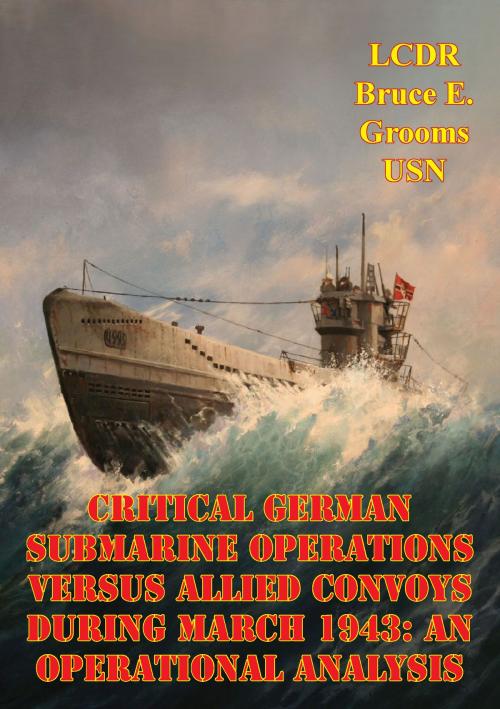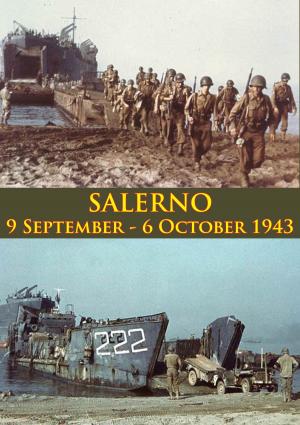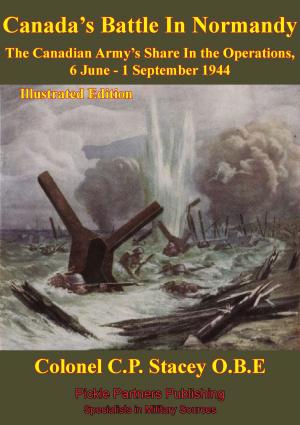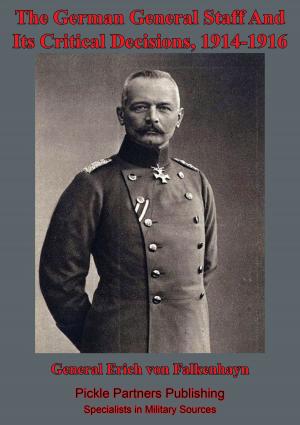Critical German Submarine Operations Versus Allied Convoys During March 1943: An Operational Analysis
Nonfiction, History, Germany, European General, Military, United States| Author: | LCDR Bruce E. Grooms | ISBN: | 9781782898009 |
| Publisher: | Lucknow Books | Publication: | August 15, 2014 |
| Imprint: | Lucknow Books | Language: | English |
| Author: | LCDR Bruce E. Grooms |
| ISBN: | 9781782898009 |
| Publisher: | Lucknow Books |
| Publication: | August 15, 2014 |
| Imprint: | Lucknow Books |
| Language: | English |
German submarine operations against allied convoys, during March 1943 is critically analyzed from an operational perspective. The theater commander’s operational scheme is dissected for the purpose of identifying lessons which can be applied to the planning and execution of today’s theater operations. A brief historical account of the early phases of the war and the events and decisions which preceded the critical convoy battles will be followed by an analysis of the operational scheme employed by Admiral Dönitz. German victory during the spring offensive clearly demonstrated numerous operational successes, a reasonably well conceived operational plan, and proof positive of the potential for a larger scale victory. Yet history recorded Germany’s ultimate defeat in the Battle of the Atlantic. This analysis identified three significant flaws which led to the German demise; first, strategic guidance and operational means were inadequately reconciled which prevented the proper execution of the operational plan; second, operational intelligence and reconnaissance were inadequately exploited; third, Germany failed to coordinate and execute joint operations between service arms, specifically the lack of air assets in support of vital U-boat operations. Clearly one must conclude a reasonable operational plan has marginal chance for success when strategic guidance and joint coordination are incompatible with theater objective accomplishment.
German submarine operations against allied convoys, during March 1943 is critically analyzed from an operational perspective. The theater commander’s operational scheme is dissected for the purpose of identifying lessons which can be applied to the planning and execution of today’s theater operations. A brief historical account of the early phases of the war and the events and decisions which preceded the critical convoy battles will be followed by an analysis of the operational scheme employed by Admiral Dönitz. German victory during the spring offensive clearly demonstrated numerous operational successes, a reasonably well conceived operational plan, and proof positive of the potential for a larger scale victory. Yet history recorded Germany’s ultimate defeat in the Battle of the Atlantic. This analysis identified three significant flaws which led to the German demise; first, strategic guidance and operational means were inadequately reconciled which prevented the proper execution of the operational plan; second, operational intelligence and reconnaissance were inadequately exploited; third, Germany failed to coordinate and execute joint operations between service arms, specifically the lack of air assets in support of vital U-boat operations. Clearly one must conclude a reasonable operational plan has marginal chance for success when strategic guidance and joint coordination are incompatible with theater objective accomplishment.








![Cover of the book One-Man Airforce [Illustrated Edition] by LCDR Bruce E. Grooms](https://www.kuoky.com/images/2014/august/300x300/9781782894483-aGMI_300x.jpg)






